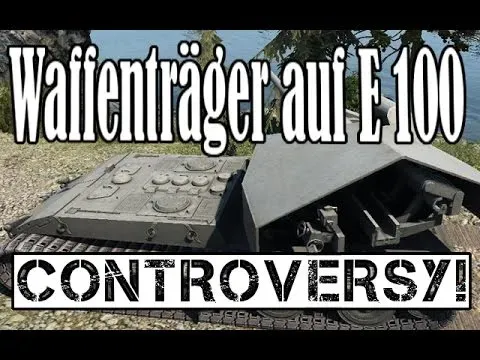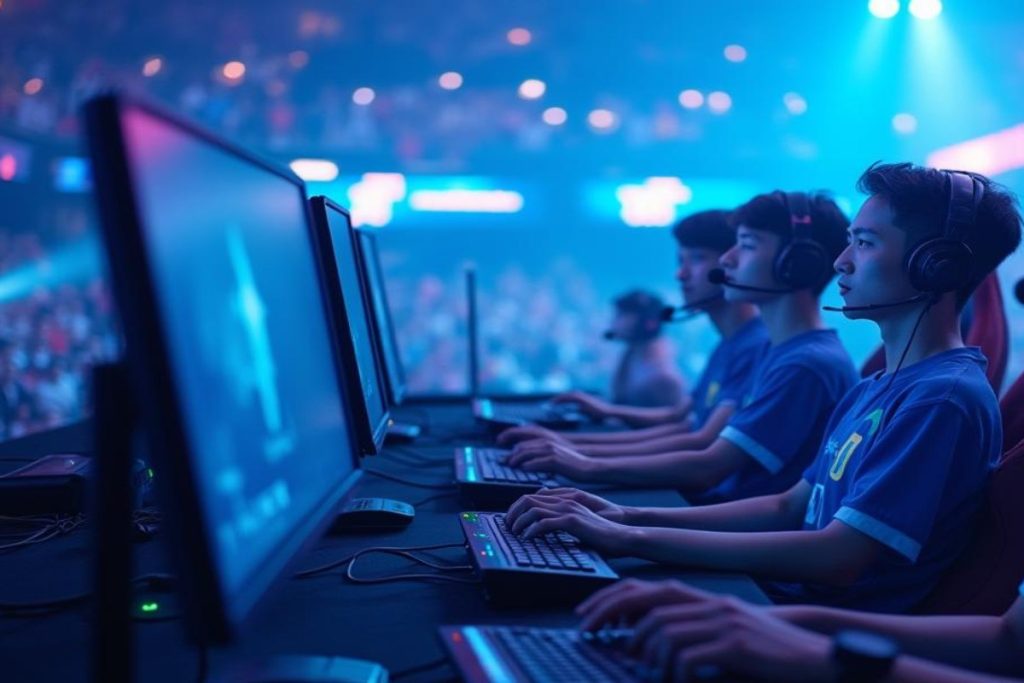The World of Tanks controversy has ignited a storm of accusations against top executives by Russian authorities due to their alleged involvement in extremist activities in support of Ukraine. Reports from state media suggest that the owners of Wargaming, the game’s developer, and Lesta Games, its Russian operator, may face severe repercussions, including the seizure of their company shares. This fallout follows Wargaming’s strategic withdrawal from Russia in response to the invasion of Ukraine, which marked a significant split in the game’s development. Russian authorities do not distinguish between Wargaming and Lesta Games, further complicating the gaming industry response and pressuring both entities amid the ongoing conflict. As Wargaming champions a campaign to raise funds for humanitarian efforts in Ukraine, the consequences of this stance continue to be felt, with accusations leading to state investigations and potential financial repercussions for both companies.
The controversy surrounding the iconic game, World of Tanks, has raised serious concerns about the implications of political affiliations in the gaming sector. Allegations of extremist activity have been levied against leadership figures within both Wargaming and Lesta Games following their public stance amidst the Russia Ukraine conflict. This situation has revealed a fracture within the gaming community as development responsibilities have diverged, creating two distinct versions of the game. The ongoing tensions have prompted various reactions from the gaming industry, as stakeholders assess the ramifications of these accusations amid rising geopolitical turmoil. As the situation evolves, it remains crucial to monitor developments, especially regarding the claims surrounding the support of extremist activities.
World of Tanks Controversy: Accusations Against Executives
In recent developments, the management of World of Tanks finds itself embroiled in controversy as Russian authorities level accusations of extremist activities against top executives. This backlash stems from their public support for Ukraine following the outbreak of the Russia-Ukraine conflict in February 2022. Reports suggest that Viktor Kisly, the owner of Wargaming, and Malik Khatazhaev, the head of Lesta Games—a separate operator of the game in Russia—are now facing potential governmental repercussions, including the seizure of their stakes in the companies due to perceived alignment with Ukrainian interests.
The scenario underscores a complicated narrative within the gaming industry, where geopolitical tensions directly influence corporate governance. Wargaming’s actions—particularly its impactful decision to withdraw from Russia and support Ukrainian initiatives, like fundraising for ambulances—have drawn the ire of the Russian government. The ongoing situation poses significant ramifications not only for Wargaming and Lesta Games but for the gaming community at large, as the collision between gaming and political agendas becomes more pronounced.
Impact of the Russia-Ukraine Conflict on the Gaming Industry
The gaming industry, particularly well-known titles like World of Tanks, has not been immune to the dynamics of the Russia-Ukraine conflict. As Wargaming distanced itself from Russian operations, the fallout of this conflict has led to a bifurcation in game development, resulting in the existence of two distinct versions of World of Tanks. This split illustrates how international conflicts can sever established lines of business and foster divisions within global brands.
Further complicating the situation, the gaming community has reacted variably, with some players supporting the efforts of Wargaming in aid of Ukraine, while others have raised concerns regarding the political implications of such actions. The rift highlights an evolving discourse within the gaming world, where the lines between entertainment, corporate responsibility, and political allegiance become increasingly blurred.
Governmental Response to Wargaming and Lesta Games
Following Wargaming’s stance on the Ukraine crisis, the Russian government’s response has been both aggressive and critical. Reports indicate that the prosecutor general’s office is looking to seize shares from the owners of Wargaming and Lesta Games, citing the companies’ operations that allegedly contradict national interests. Such actions reflect how authoritarian regimes often retaliate against companies perceived as disloyal, emphasizing the significance of corporate image in politically charged environments.
This governmental response poses a crucial question regarding the future of businesses that operate in politically volatile regions. While Lesta Games asserts compliance with local laws and expresses confidence in their operational integrity, the looming threat of asset seizure creates a precarious atmosphere for businesses. It also serves as a stark reminder of how corporate strategy must navigate the complex terrain of both business interests and political sentiments.
The Role of Lesta Games in the World of Tanks Ecosystem
Lesta Games, acting as the Russian operator of World of Tanks, has found itself in a unique position amid the ongoing geopolitical turmoil. Following Wargaming’s withdrawal from Russia, Lesta took on the responsibility of managing the game’s operations within the region. However, its role also exposes it to the government’s scrutiny, especially as tensions escalate around the accusations of extremist support tied to its parent company.
Despite the challenges, Lesta Games maintains that it adheres to all legal requirements within the Russian Federation and the Republic of Belarus. The company’s public declarations aim to reassure both players and stakeholders about their operational legitimacy. Yet, the complex relationship between the gaming company and the state raises questions about the viability of their business model moving forward, particularly under the watchful eye of a regime that demonstrates a low tolerance for dissent.
Community Response to World of Tanks’ Political Positioning
The gaming community’s response to the World of Tanks controversy has been multifaceted, with a mixture of support and criticism directed toward Wargaming. Players who align with the company’s humanitarian efforts, such as their in-game fundraising campaigns for Ukraine, showcase a segment that champions corporate responsibility and social engagement within the gaming industry. This response reveals a growing trend of gamers advocating for companies to take clear political stances.
Conversely, players from the opposing side express discontent over what they perceive as politicization of a beloved game. This divide illustrates the struggle between consumer expectations and corporate actions in the current climate, where players increasingly evaluate titles based on their political affiliations and moral compass. As this situation evolves, it poses significant implications for how gaming companies engage with social issues.
Wargaming’s Future: Navigating Political Waters
As Wargaming charts its course amidst accusations and geopolitical strife, the company faces a daunting challenge in redefining its relationship with the Russian market. With the state moving to seize shares, Wargaming’s future operations in the region appear uncertain. The strategic decisions made now will significantly affect not only the company but also the broader gaming landscape, especially as corporate entities reconcile profit with ethical considerations.
Looking ahead, Wargaming may need to reassess its operational strategies, possibly prioritizing alternative markets to mitigate risks associated with Russian operations as political tensions persist. This move could set a precedent for other gaming industry leaders considering their own positions amid international disputes, emphasizing the growing interconnection between global politics and the commercial gaming ecosystem.
Lesta Games’ Position in a Polarized Environment
In the shadow of the ongoing conflict in Ukraine, Lesta Games finds itself navigating a polarized environment that affects its business operations. As the separate operator of World of Tanks in Russia, Lesta faces challenges in distancing itself from Wargaming’s narrative while also appealing to local consumer bases. The internal versus external pressure creates a tenuous situation where Lesta must tactically manage its image while ensuring compliance under increasing scrutiny.
The company has publicly defended its operations, emphasizing adherence to Russian law, but such claims may not be enough to shield it from government backlash. This dynamic places Lesta Games in a unique position to either capitalize on or suffer from the fallout of geopolitical conflicts, suggesting the need for a nuanced approach towards brand management in a turbulent climate.
Review of Extremist Activities Accusations in Gaming
The accusations of extremist activities levied against the executives of Wargaming and Lesta Games have sparked a broader debate about the intersection of gaming and political discourse. In a landscape increasingly dominated by social responsibility, gaming companies are pivotal players in shaping public perception and addressing controversial issues. The claims against Wargaming reflect how businesses may become target points for political narratives that stretch far beyond the entertainment sphere.
Such accusations may serve as a wake-up call for the gaming industry, highlighting the necessity for companies to cultivate transparent communication strategies with players and stakeholders. The reputational risk associated with being embroiled in political entanglements calls for a reevaluation of corporate responsibility and the potential ramifications of international crises on game development and marketing.
Political Implications for the Gaming Industry at Large
The unfolding situation surrounding World of Tanks is a reflection of the broader political implications faced by the gaming industry. As corporations become increasingly entangled in international politics, gaming companies must weigh the potential risks versus the benefits of maintaining operations in politically sensitive regions. The fallout from Wargaming’s support of Ukraine could act as a template for future gaming companies faced with similar dilemmas.
In an era where consumers are more socially aware than ever, gaming entities must navigate the delicate balance of profitability while aligning with ethical considerations. This involves not only a proactive stance on sociopolitical issues but also the foresight to anticipate repercussions that may stem from corporate actions, signaling a call for strategic foresight across the industry.
Frequently Asked Questions
What is the current controversy surrounding World of Tanks and its relationship with Russia?
The World of Tanks controversy stems from accusations by Russian authorities against top executives for extremist activities due to their support for Ukraine. This includes Wargaming’s public withdrawal from Russia following the Ukraine conflict, leading to developments being split between Wargaming and the separate Russian operator, Lesta Games.
How has the Russia Ukraine conflict impacted the development of World of Tanks?
As a result of the Russia Ukraine conflict, Wargaming ceased its operations in Russia and transferred World of Tanks development to Lesta Games. This division has resulted in two versions of the game, and tensions remain high as accusations against both companies continue over their stance on the conflict.
What accusations have been made against Wargaming executives related to extremist activities?
Wargaming executives, including the owner Viktor Kisly, are accused by Russian state media of extremist activities due to their support for Ukraine, which involves initiatives such as fundraising for ambulances. The Russian government seeks to seize their shares in the company as a consequence.
How has Lesta Games responded to the accusations against its executives?
Lesta Games has publicly stated that they operate in full compliance with Russian legislation and have nothing to conceal. They deny any wrongdoing, emphasizing that their operations are legitimate and unassociated with the accusations of extremist activities linked to Wargaming’s support for Ukraine.
Is there a difference in the operations of Wargaming and Lesta Games regarding World of Tanks?
While World of Tanks has two separate developers, Wargaming and Lesta Games, the Russian government does not differentiate between them in the current controversy. Both companies are being scrutinized in relation to the Ukraine conflict and the potential legitimacy of their business operations.
What steps did Wargaming take after the escalation of the Russia Ukraine conflict in 2022?
After the escalation of the Russia Ukraine conflict in February 2022, Wargaming announced its withdrawal from Russia, ceasing operations in cities like Minsk, Moscow, and St. Petersburg. They handed over development responsibilities of World of Tanks to Lesta Games, which now manages the game in the Russian market.
What is the gaming industry’s response to the World of Tanks controversy?
The gaming industry’s response to the World of Tanks controversy has been mixed, as many game developers and companies are reassessing their operations and involvement in Russia amidst ongoing geopolitical tensions. The situation reflects a broader trend of businesses being forced to navigate complex political landscapes.
Why is the fundraising campaign by World of Tanks significant in this controversy?
The fundraising campaign launched by World of Tanks to support Ukraine, especially for ambulances, has become a focal point in the controversy. Russian authorities cite this initiative as evidence of the company’s opposition to the government’s actions in Ukraine, further complicating Wargaming’s position in the ongoing conflict.
How does the Russian government perceive the actions of Wargaming and Lesta Games?
The Russian government perceives the actions of Wargaming and Lesta Games as oppositional to the state’s interests due to their support for Ukraine, leading to threats of seizure of shares. This perception is fueled by the close ties of both companies to the gaming community, which is viewed as a platform for dissent against the government’s narrative.
Are there any legal implications for Wargaming and Lesta Games due to the current controversy?
Yes, the legal implications for Wargaming and Lesta Games are significant, with the Russian government seeking to seize shares held by key executives as part of the response to their support for Ukraine. This action could impact the companies’ operational viability in Russia and their future in the gaming industry.
| Key Points | Details |
|---|---|
| Executives Accused | Wargaming’s top executives face accusations of extremist activities by Russian authorities due to their support for Ukraine. |
| Company Stakes at Risk | The Russian government may seize stakes held by Wargaming’s owner, Viktor Kisly, and Lesta Games’ owner, Malik Khatazhaev. |
| Development Split | After Russia’s invasion of Ukraine, development responsibilities for World of Tanks split between Wargaming and Lesta Games. |
| Ongoing Support for Ukraine | Wargaming continues to support Ukraine through in-game campaigns, like fundraising for ambulances. |
| Russian Government’s Position | The Russian government views the fundraising campaign as non-compliance with support for Russia’s operations. |
| Lesta Games’ Stance | Lesta Games insists they operate under Russian law and do not fear government action. |
Summary
The World of Tanks controversy stems from the accusations against the game’s top executives by Russian authorities due to their open support for Ukraine, particularly in light of Russia’s invasion in 2022. As tensions escalate, the implications for Wargaming and its affiliates continue to unfold, putting their financial stakes and operational integrity at risk while showcasing the complexities of international relations in the gaming industry.



